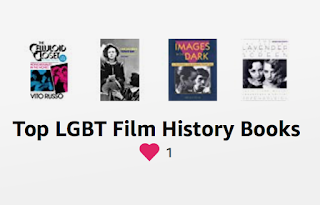What is Butch?
Butch blogger Sinclair Sexsmith has invited me to be part of the Sugarbutch Chronicles Butch Symposium #1. Since Sinclair very flatteringly included me on last year’s TopHotButches.com list (#74) I feel not only indebted, but, as you can imagine, invested in maintaining my status and credibility. Read on below for my response to Sinclair’s Symposium #1 prompt:
“What is butch? How do you define butch? What do you love about it? What does it mean to you?”
I’ve been pondering this prompt for the past few weeks and trying to muster my creativity to say something original on the topic. As the proprietor of Butch.org, obviously butch is a meaningful category for me.
Though there are also times in my life where I feel somewhat jaded and tired of having this discussion.
One of the things I often say (when I am interested in talking about butch identity) is that I think both butch and femme are concepts which people have very idiosyncratic understandings of — we are not always on the same page in our ideas of what it means to be butch. Whether talking about outward characteristics and mannerisms; more seemingly internal personality traits such as qualities of sensitivity, vulnerability; what we do in bed; etc. Much to talk about, no wonder I get weary of the conversation sometimes.
I do believe that the dialogues we feel so compelled to create around butch identity arise out of a deep desire to be understood (and to understand ourselves). We have a need for community, a need for heroes. And a need for the validation that can help us retain our sanity and self-esteem in a culture that rarely offers us affirming recognition and is far more likely to give us questioning looks, overt criticism, or a hard time about using a public bathroom.
Having grown up as a gender non-conforming child, and navigating life as a gender-trans adult, my butch identity has been a way of naming myself and proclaiming who I am — so that I might embrace these qualities and think of myself as a hero instead of an awkward, self-conscious mistake of nature.
I’m writing this on the weekend of Transgender Day of Remembrance and have been immersed in thoughts of Gwen Araujo — the transgender teen who was murdered here in the Bay Area in October 2002. I have come to know Gwen posthumously through the activism of her mother, Sylvia Guerrero.
The first time I saw Sylvia speak, at the first San Francisco Trans March in 2004, I remember experiencing an indescribable feeling of sadness and joy as Sylvia publicly expressed her love and compassion and support for her daughter. She proudly praised Gwen’s unique beauty. She righteously denounced not just Gwen’s murderers, but all of the people whose ignorance and fear prevented them from appreciating who Gwen was. Thinking back on this experience I remember wishing that Sylvia (who is in fact younger than I am) were my mother in that moment.
It would have been wonderful to have felt more understood by my parents when they were alive. To make up for that particular disappointment though, I am now having the spectacularly uplifting experience of feeling understood by my children.
In the intimacy of being a parent — being seen and loved by my kids who totally get me and embrace me for exactly who I am — I feel more deeply understood than I ever imagined possible. And I’m that much more hopeful for the future, as the kids of genderqueer people come of age and make the world a place of greater understanding for us all.



Comments
Validation not only from our community but also from our family. Absolutely.